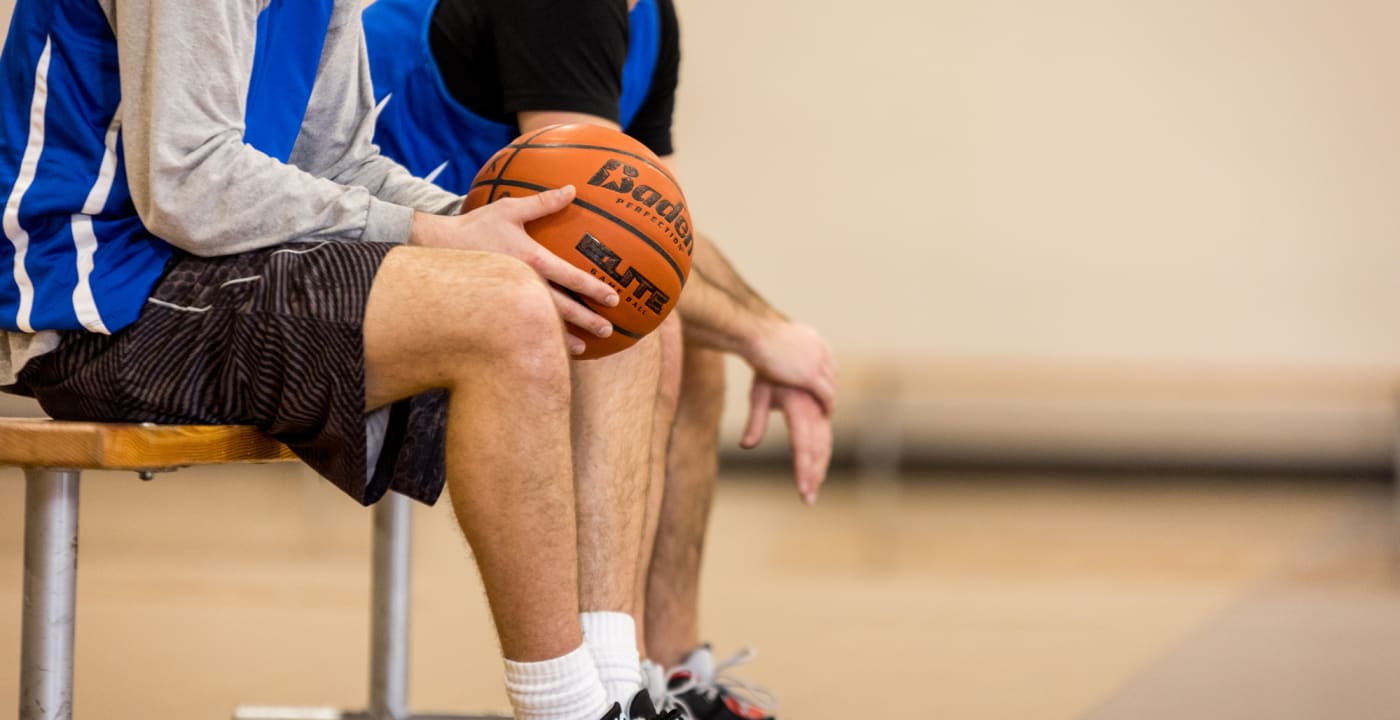Getting back in the game after an Achilles injury

Andrew Canning, an active 34-year-old from Spokane who works with MultiCare marketing, has played sports all his life. Most recently he’s enjoyed playing on a recreational basketball league about three to four times a week.
But Canning’s amateur basketball career came to a halt last December when he suffered a ruptured Achilles tendon on the court.
“I heard a loud pop, and it felt like someone had kicked the back of my leg,” Canning explains. “I had a pretty good idea it was my Achilles because I’ve known people with this injury in the past.”

Within a few days of the injury, Canning was referred to foot and ankle surgeon Tyler Hughes, MD, at MultiCare Integrated Sports Medicine.
“The majority of my patients who’ve ruptured their Achilles did so while playing basketball,” says Dr. Hughes. “It’s a high-impact sport that involves a lot of jumping and landing on the Achilles when it’s in a tight, flexed position.”
An exam confirmed Canning’s tendon had been fully ruptured, so he decided to move forward with a surgical repair.
“Dr. Hughes did give me the option of treating the injury nonsurgically, but he said it was a longer road to recovery,” says Canning. “One full year to recover from surgery seemed like a long enough recovery to me.”
There’s evidence that Achilles tendon injuries will heal nonsurgically, explains Dr. Hughes. And for older, less active people, it can be a good option.
“For younger, more active people, however, repairing surgically allows you to move and walk earlier,” he says. “Also, studies have shown push-off strength and rate of re-rupture are better after surgery.”
A steady approach to recovery
Canning says his surgery went well and that he was impressed with the coordination of post-surgical care between providers.
“Dr. Hughes’s staff called me the day after surgery to go over any questions I had,” Canning recalls. “They gave me a timeline, so I knew what to expect throughout the recovery process, and they had already scheduled the first six weeks of physical therapy.”
Physical therapist Kyle Sasser, DPT, says Canning’s physical therapy regimen was typical for an Achilles injury.
“Andrew came in more frequently in the beginning because of the stiffness and swelling,” says Sasser. “Once swelling subsided, we worked on range of motion, then once he was ready, we moved onto strength and conditioning.”
At Canning’s current stage of recovery, he’s able to do more dynamic activities like hopping and walk/jog intervals that will progress into running.
“Prior to four months post-surgery, it’s not safe to do those movements,” Sasser says. “The repair needs time to heal before we put a dynamic load on it.”
Canning says using the anti-gravity treadmill (AlterG) has been a neat aspect of his physical therapy.
“The AlterG machine is a useful tool for patients as they progress from non-weight-bearing to full-weight-bearing,” explains Sasser. “It helps get their body moving by taking their body weight off their legs.”
Integrated, collaborative care
Canning continues with weekly physical therapy, which conveniently takes place at the same clinic where he sees Dr. Hughes — MultiCare Integrated Sports Medicine.
“The clinic brings together orthopedists, sports medicine doctors and physical therapists under the same roof,” says Dr. Hughes. “It’s great being all in one place. The [physical therapists] come see me if there are any issues they need to discuss about our mutual patients and vice versa.”
Sasser agrees and says it adds a level of encouragement to patients.
“Patients aren’t used to seeing their surgeon beyond an exam room,” he says. “I think it humanizes their doctor and shows they aren’t just behind the scenes. The doctors will come over and interact with patients, and it’s helpful for me to have them there if I have any questions about treatment.”
While Canning is still technically recovering, he feels confident he’ll be back on the court again soon.
As for tips to avoid rupturing your Achilles tendon, Dr. Hughes says being diligent about doing calf stretches and raises before activities can help prevent injury.
Whether you’re looking to reduce pain from injuries, discuss surgical options or boost athletic performance, ask your primary care provider about a referral or call for a consultation with MultiCare Orthopedic and Sports Medicine.
What's next
- Ask your primary care physician about a referral with MultiCare Orthopedics and Sports Medicine
- More about MultiCare Integrated Sports Medicine in Spokane
- Related content: 7 steps to prepare for Hoopfest



